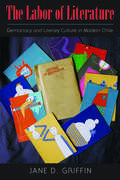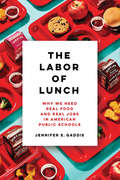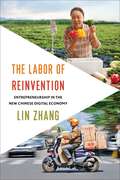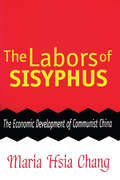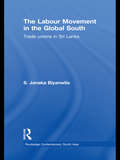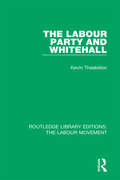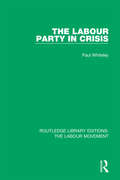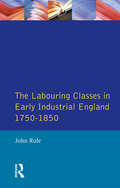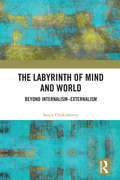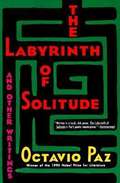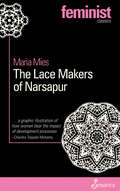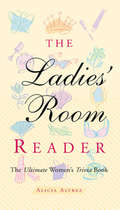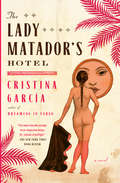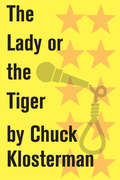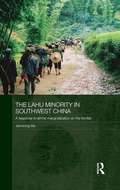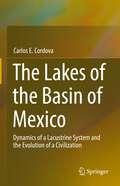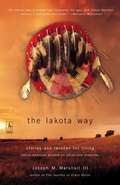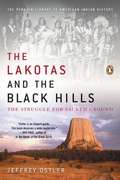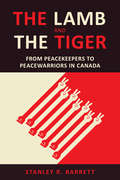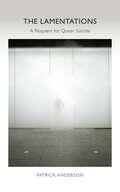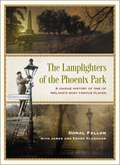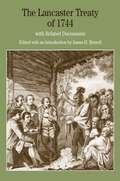- Table View
- List View
The Labor of Literature: Democracy and Literary Culture in Modern Chile
by Jane D. GriffinBy producing literature in nontraditional forms—books made of cardboard trash, posters in subway stations, miniature shopping bags, digital publications, and even children’s toys—Chileans have made and circulated literary objects in defiance of state censorship and independent of capitalist definitions of value. In The Labor of Literature Jane D. Griffin studies amateur and noncommercial forms of literary production in Chile that originated in response to authoritarian state politics and have gained momentum throughout the postdictatorship period. She argues that such forms advance a model of cultural democracy that differs from and sometimes contradicts the model endorsed by the state and the market. By examining alternative literary publications, Griffin recasts the seventeen-year Pinochet dictatorship as a time of editorial experimentation despite widespread cultural oppression and shows how grassroots cultural activism has challenged government-approved corporate publishing models throughout the postdictatorship period. Griffin’s work also points to the growing importance of autogestión, or do-it-yourself cultural production, where individuals combine artisanal forms with new technologies to make and share creative work on a global scale.
The Labor of Lunch: Why We Need Real Food and Real Jobs in American Public Schools (California Studies in Food and Culture #70)
by Jennifer E. GaddisThere’s a problem with school lunch in America. Big Food companies have largely replaced the nation’s school cooks by supplying cafeterias with cheap, precooked hamburger patties and chicken nuggets chock-full of industrial fillers. Yet it’s no secret that meals cooked from scratch with nutritious, locally sourced ingredients are better for children, workers, and the environment. So why not empower “lunch ladies” to do more than just unbox and reheat factory-made food? And why not organize together to make healthy, ethically sourced, free school lunches a reality for all children? The Labor of Lunch aims to spark a progressive movement that will transform food in American schools, and with it the lives of thousands of low-paid cafeteria workers and the millions of children they feed. By providing a feminist history of the US National School Lunch Program, Jennifer E. Gaddis recasts the humble school lunch as an important and often overlooked form of public care. Through vivid narration and moral heft, The Labor of Lunch offers a stirring call to action and a blueprint for school lunch reforms capable of delivering a healthier, more equitable, caring, and sustainable future.
The Labor of Reinvention: Entrepreneurship in the New Chinese Digital Economy
by Lin ZhangFrom start-up founders in the Chinese equivalent of Silicon Valley to rural villages experiencing an e-commerce boom to middle-class women reselling luxury goods, the rise of internet-based entrepreneurship has affected every part of China. For many, reinventing oneself as an entrepreneur has appeared to be an appealing way to adapt to a changing economy and society. Yet in practice, digital entrepreneurship has also reinforced traditional Chinese ideas about state power, labor, gender, and identity.Lin Zhang explores how the everyday labor of entrepreneurial reinvention is remaking China amid changing geopolitical currents. She tells the stories of people from diverse class, gender, and age backgrounds across rural, urban, and transnational settings in rich detail, providing a multifaceted and ground-level view of the twenty-first-century Chinese economy. Zhang explores the surge in digital entrepreneurialism against the backdrop of global financial crises, the U.S.-China trade war, and the COVID-19 pandemic. She argues that the rise of internet-based industries and practices has simultaneously empowered and exploited digital entrepreneurs and laborers. Despite embracing high-tech innovation, state-led entrepreneurialization does not represent a radical break with the past. It has provided a means for implementing developmental goals while retaining the importance of the traditional family and generating new inequalities.Shedding new light on global capitalism and the digital economy by centering a non-Western perspective, The Labor of Reinvention vividly conveys how the contradictions of entrepreneurialism have played out in China.
The Labors of Sisyphus: Economic Development of Communist China
by Joan RolandAlmost a half century has passed since the inception of the People's Republic cf China. In that time a charismatic leader has ruled and died, leaving a wake of .Destruction in his quest to transform China. In that time, too, the PRC's most powerful ally and mentor, the Soviet Union, has dismantled and announced that jcmmunism had failed. Today, China fluctuates between tradition and modernity, ideology and pragmatism, between an antiquated collectivist ethic and a new spirit rf individualism. It is a country precariously suspended between past and future. Maria Hsia Chang's The Labors of Sisyphus is a long overdue reassessment of rie meaning and purpose of the Chinese communist revolution. In it, she discusses ihe thought of Mao Zedong and Deng Xiaoping, reform and its dilemmas, regionalism in greater China and autonomous areas, and nationalism. She also eyjnines China's immediate present and uncertain future. If it manages to transform economic growth into development, China--filled with natural resources and a large, capable labor force--has the potential to become a world superpower. It could also collapse under the weight of its own problems: regionalism, a flawed state sector, corruption, and a pronounced decline in state capacity. If China succeeds, an imposing new economic power will enter the global stage, one that is often arbitrary and prone to despotism and xenophobia, unless it is tempered by political reform. Prior accounts of communist China have failed to capture China's evolving present In all its complexity and variety, misrepresenting Maoist China In the process. Information shortfall was partly to blame: as recently as August 1994, the Chinese government itself decried falsification of statistics by government officials and cadres. Sinologists in the 1960s and 1970s had to approach analysis of contemporary China with clear recognition of the limitations involved and the questionable validity of the factual sources available. Maria Hsia Chang lends structure, meaning, and purpose to the very complex recent political and historical past of communist China. With greater access to more accurate information, Chang is able to analyze objectively, without political motive or intention, providing readers with a fresh look at the People's Republic. Her pathbreaking work will be of interest to scholars of international economics and politics, sinologists, and historians.
The Labour Markets of Emerging Economies
by Sher Verick Sandrine CazesThe past few decades have witnessed the economic and geopolitical rise of a number of large middle-income countries around the world. This volume focuses on the labour market situations, trends and regulations in these emerging economies.
The Labour Movement in the Global South: Trade Unions in Sri Lanka (Routledge Contemporary South Asia Series)
by S. Janaka BiyanwilaBased on extensive original research, this book examines the challenges confronting trade unions in the global South, by focusing on trade union struggles in Sri Lanka under neo-liberal globalisation. It centres on movement politics of unions; explains union capacities to mobilise workers as a part of broad counter movement; and specifies worker struggles in Sri Lanka. The author identifies key dimensions of variation in the approaches taken by oppositional groupings, in particular unions, other labour organisations and the labour movement, and locates those variations in a larger theoretical context. Three case studies on trade unions in tea plantations, garment factories and among the nurses show how these theoretical dimensions operate in practice, and the consequences for the sort of opposition that is (and is not) created. The book contributes to the on-going debate on social movement unionism, and it also reveals their gaps in terms of addressing how class injustices are mediated through ethno-nationalist projects reproducing ethnic and gender hierarchies. It acknowledges the diversity of experiences and forms of resistance in the global South and critically engages with issues of gender, ethnicity and labour internationalism, providing a useful contribution to studies on South Asian Politics as well as Labour and Development Studies.
The Labour Party and Whitehall (Routledge Library Editions: The Labour Movement #38)
by Kevin TheakstonFirst published in 1992. In this lively and controversial book, Kevin Theakston examines the Yes, Minister-style argument popularised by Tony Benn and Richard Crossman that the civil service obstructs Labour government policies. He argues that in fact the Labour party’s problems and failures in office are largely political in origin. The book surveys the development of socialist thinking about Whitehall, and examines the claim of a Labour MP in 1979 that ‘It is as if Labour in office has now lost all stomach for administrative reform.’ Theakston looks at the effectiveness of Labour’s various reform schemes, raising important issues such as politicisation and power in the civil service, Whitehall management, elitism in civil service recruitment, and secrecy and ‘open government’. This book will appeal to researchers and students of British politics, public administration, and history, as well as to all those with an interest in Whitehall reform, or in Labour Party politics.
The Labour Party in Crisis (Routledge Library Editions: The Labour Movement #43)
by Paul WhiteleyFirst published in 1983. This study draws upon empirical findings on party activists, members and voters. It examines the origins and nature of Labour’s crisis in the 1980s, showing how the split leading to the formation of the SDP was merely a manifestation of deeply rooted problems which went back many years. It argues that this crisis had three distinct but interrelated aspects: first, the ideological schism within the party, which had grown in intensity over time; second, the electoral crisis, which produced the worst electoral performance at the 1983 general election since 1918; and, third, the membership crisis arising from the fact that the party had been losing more than 11,000 individual members per year on average since 1945. Using elite and mass surveys the book demonstrates the link between these crises and Labour’s policy performance in office set against a background of rapid economic decline.
The Labouring Classes in Early Industrial England, 1750-1850 (Themes In British Social History)
by John RuleThis is the most comprehensive and up-to-date synthesis of current research on the social conditions, experiences and reactions of working people during the period 1750 - 1850.
The Labyrinth of Mind and World: Beyond Internalism–Externalism
by Sanjit ChakrabortyThis book carries forward the discourse on the mind’s engagement with the world. It reviews the semantic and metaphysical debates around internalism and externalism, the location of content and the indeterminacy of meaning in language. The volume analyzes the writings of Jackson, Chomsky, Putnam, Quine, Bilgrami and others, to reconcile opposing theories of language and the mind. It ventures into Cartesian ontology and Fregean semantics to understand how mental content becomes world-oriented in our linguistic communication. Further, the author explores the liaison between the mind and the world from the phenomenological perspective, particularly, Husserl’s linguistic turn and Heidegger’s intersubjective entreaty for Dasein. The book conceives of thought as a biological and socio-linguistic product which engages with the mind-world question through the conceptual and causal apparatuses of language. A major intervention in the field of philosophy of language, this book will be useful for scholars and researchers interested in philosophy, phenomenology, epistemology and metaphysics.
The Labyrinth of Solitude, and The Other Mexico
by Octavio Paz Rachel Phillips Belash Lysander Kemp Yara MilosOctavio Paz has long been acknowledged as Mexico's foremost writer and critic. In this international classic, Paz has written one of the most enduring and powerful works ever created on Mexico and its people, character, and culture. Compared to Ortega Gasset's The Revolt of the Masses for its trenchant analysis, this collection contains his most famous work, "The Labyrinth of Solitude," a beautifully written and deeply felt discourse on Mexico's quest for identity that gives us an unequaled look at the country hidden behind "the mask." Also included are "The Other Mexico," "Return to the Labyrinth of Solitude," "Mexico and the United States," and "The Philanthropic Ogre," all of which develop the themes of the title essay and extend his penetrating commentary to the United States and Latin America. Winner of the 1990 Nobel Prize for Literature, and past recipient of the Jerusalem Prize, the Frankfurt Peace Prize, and the Neustadt Prize, Octavio Paz is the author of more than twenty-five books of poetry and prose. In addition to being a poet, essayist, playwright, social philosopher, and critic, he has also served as a Mexican diplomat in France and Japan, and as Mexican ambassador to India.
The Lace Makers of Narsapur
by Maria MiesA sensitive and groundbreaking study of women, this examination of globalization in India provides a fascinating case study of its effects on female workers in the state of Andhra Pradesh. Originally published in 1982, the book is an important insight into a group dispossessed before the recent economic boom in India. It details the way in which women have been used to produce luxury goods for the Western market while they are not counted as workers or producers in their fragmented workplaces. Instead, these women are defined as nonworking housewives and their work as leisure activity. With rates of pay far below acceptable levels, pauperization is accelerated and their position in Indian society rapidly deteriorates. An invaluable analysis with implications on the global stage, the case of the lace makers continues to instruct on the real impact of industrial development.
The Ladies' Room Reader: The Ultimate Women's Trivia Book
by Alicia AlvrezFifty-seven percent of women would rather shop than have sex. Jodie Foster was born Ariane Munker, and Lauren Bacall, Betty Joan Perske. Oprah Winfrey and Margaret Avery, both nominated for Best Supporting Actress Oscars for The Color Purple, were the first two African-American women nominated in the same year for the same category. At the height of her popularity, screen star Betty Grable had her legs insured for,000 - a modest sum compared to the 0,000 policy Fred Astaire took out on his feet! These nuggets, along with everything else you've ever wanted to know about women, are to be found within this easy-to-browse resource. Here are women's views on shopping, clothing and cosmetics, marriage and children, food, sex, and pets, along with the lowdown on women celebrities and the feats of history's heroines and female adventurers.
The Lady Matador's Hotel
by Cristina GarcíaNational Book Award finalist Cristina García delivers a powerful and gorgeous novel about the intertwining lives of the denizens of a luxurious hotel in an unnamed Central American capital in the midst of political turmoil. The lives of six men and women converge over the course of one week. There is a Japanese-Mexican-American matadora in town for a bull-fighting competition; an ex-guerrilla now working as a waitress in the hotel coffee shop; a Korean manufacturer with an underage mistress ensconced in the honeymoon suite; aninternational adoption lawyer of German descent; a colonel who committed atrocities during his country's long civil war; and a Cuban poet who has come with his American wife to adopt a local infant. With each day, their lives become further entangled, resulting in the unexpected--the clash of histories and the pull of revenge and desire.Cristina García's magnificent orchestration of politics, the intimacies of daily life, and the frailty of human nature unfolds in a moving, ambitious, often comic, and unforgettable tale.
The Lady or the Tiger
by Chuck KlostermanOriginally collected in Sex, Drugs, and Cocoa Puffs and now available both as a stand-alone essay and in the ebook collection Chuck Klosterman on Media and Culture, this essay is about cereal.
The Lahu Minority in Southwest China: A Response to Ethnic Marginalization on the Frontier (Routledge Contemporary China Series)
by Jianxiong MaThe Lahu, with a population of around 470,000, inhabit the mountainous country in Yunnan Province bordering on Burma, Laos and northern Thailand. Buddhists, with a long history of resistance to the Chinese Han majority, the Lahu are currently facing a serious collapse of their traditional social system, with the highest suicide rate in the world, large scale human trafficking of their women, alcoholism and poverty. This book, based on extensive original research including long-term anthropological research among the Lahu, provides an overview of the traditional way of life of the Lahu, their social system, culture and beliefs, and discusses the ways in which these are changing. It shows how the Lahu are especially vulnerable because of their lack of political representatives and a state educated elite which can engage with, and be part of, the government administrative system. The Lahu are one of many relatively small ethnic minorities in China – overall the book provides an example of how the Chinese government approaches these relatively small ethnic minorities.
The Lakes of the Basin of Mexico: Dynamics of a Lacustrine System and the Evolution of a Civilization
by Carlos E. CordovaThis book is a review of research on the prehistoric and historic evolution of the Basin of Mexico’s lacustrine systems. Based on this review, the book presents a model of long and short-term natural lacustrine dynamics as the basis for understanding the processes of human adaptation and transformation of the aquatic ecosystems of the Basin of Mexico. Although only remains of the former lakes exist, the book stresses the importance of the knowledge of the former natural and cultural history of the lakes. In this sense, the book addresses the misconceptions and misinterpretations of the lakes that still exist in the literature and the media and that do not reflect the real nature of the lakes in the past. Therefore, the book attempts to not only feed into the local knowledge of the lakes, but also contribute to the worldwide knowledge of lacustrine dynamics and human populations that lived in and around them. The book should be of interest to geographers, geologists, archaeologists, natural historians and environmental scientists, civil engineers, city planners and those involved in the management of natural resources.
The Lakota Way: Stories and Lessons for Living
by Joseph M. MarshallJoseph M. Marshall's thoughtful, illuminating account of how the spiritual beliefs of the Lakota people can help us all lead more meaningful, ethical lives. Rich with storytelling, history, and folklore, The Lakota Way expresses the heart of Native American philosophy and reveals the path to a fulfilling and meaningful life. Joseph Marshall is a member of the Sicunga Lakota Sioux and has dedicated his entire life to the wisdom he learned from his elders. Here he focuses on the twelve core qualities that are crucial to the Lakota way of life--bravery, fortitude, generosity, wisdom, respect, honor, perseverance, love, humility, sacrifice, truth, and compassion. Whether teaching a lesson on respect imparted by the mythical Deer Woman or the humility embodied by the legendary Lakota leader Crazy Horse, The Lakota Way offers a fresh outlook on spirituality and ethical living.
The Lakota Way: Stories and Lessons for Living
by Joseph M. MarshallJoseph M. Marshall’s thoughtful, illuminating account of how the spiritual beliefs of the Lakota people can help us all lead more meaningful, ethical lives.Rich with storytelling, history, and folklore, The Lakota Way expresses the heart of Native American philosophy and reveals the path to a fulfilling and meaningful life. Joseph Marshall is a member of the Sicunga Lakota Sioux and has dedicated his entire life to the wisdom he learned from his elders. Here he focuses on the twelve core qualities that are crucial to the Lakota way of life--bravery, fortitude, generosity, wisdom, respect, honor, perseverance, love, humility, sacrifice, truth, and compassion. Whether teaching a lesson on respect imparted by the mythical Deer Woman or the humility embodied by the legendary Lakota leader Crazy Horse, The Lakota Way offers a fresh outlook on spirituality and ethical living.
The Lakotas and the Black Hills: The Struggle For Sacred Ground
by Jeffrey OstlerA concise and engrossing account of the Lakota and the battle to regain their homeland. The Lakota Indians made their home in the majestic Black Hills mountain range during the last millennium, drawing on the hills' endless bounty for physical and spiritual sustenance. Yet the arrival of white settlers brought the Lakotas into inexorable conflict with the changing world, at a time when their tribe would produce some of the most famous Native Americans in history, including Red Cloud, Sitting Bull, and Crazy Horse. Jeffrey Ostler's powerful history of the Lakotas' struggle captures the heart of a people whose deep relationship with their homeland would compel them to fight for it against overwhelming odds, on battlefields as varied as the Little Bighorn and the chambers of U. S. Supreme Court.
The Lamb and the Tiger: From Peacekeepers to Peacewarriors in Canada (UTP Insights)
by Stanley BarrettThis book focuses on the broad implications of the transformation of Canada from a peacekeeping to a war-making nation during the Conservative Party’s recent decade in power. Funds were poured into the Canadian Forces, and a newly militarized nation found itself entrenched in conflicts around the globe. For decades, Canada had played a leading role in UN peacekeeping, and when the Cold War ended, the prospect of international harmony was infectious. Yet in short order hostilities erupted in the failed states of Rwanda, Somalia, and the Balkans; terrorism – including 9/11 – raised its head; and Iraq and Afghanistan became war zones. In the face of these immense challenges, the UN was dismissed by its opponents as irrelevant. Structured around an anti-war perspective, The Lamb and the Tiger critically examines the ageless genetic and more recent cultural (civilizational) explanations of war, concluding with a close look at the impact of war and right-wing politics on women and Indigenous peoples. The Lamb and the Tiger encourages Canadians to think about what kind of military and what kind of country they really want.
The Lamentations: A Requiem for Queer Suicide
by Patrick AndersonFINALIST, ASSOCIATION FOR THEATRE IN HIGHER EDUCATION (ATHE) OUTSTANDING BOOK AWARDA moving journey through the shadows of queer suicide and a tribute to lives marked by struggle and beautyThe Lamentations explores the struggles and resilience within the queer community, offering a unique blend of historical analysis and emotional tribute to those affected. Author Patrick Anderson examines the phenomenon of queer suicide across various art forms such as film, theatre, and literature, tracing its evolution from the twentieth century to today.Anderson brings to light the personal stories of individuals in the queer community who have ended their lives, compiling narratives from sources like newspaper articles, obituaries, and case studies. The book confronts the harsh realities of loneliness, shame, and oppression faced by many LGBTQ+ individuals, providing a poignant reflection on the societal challenges they face.The Lamentations is more than a meditation on death; it’s a narrative of survival, mourning, and healing. Sharing personal accounts, including the losses of loved ones and friends, Anderson highlights the importance of memory and storytelling in celebrating the vibrancy of queer life amidst the sorrow of loss. Accessible to a broad readership, the book transcends academic boundaries to address themes of love, loss, and the human spirit. It’s a compelling read for anyone interested in queer studies or anyone seeking to understand human experience through the lens of loss and legacy.
The Lamplighters of the Phoenix Park: A unique history of one of Ireland’s most famous places
by Donal Fallon James Flanagan Frank FlanaganThe Phoenix Park in Dublin holds a special place in the collective memory of Irish people. From the assassinations of 1882 and the destruction of several imperial monuments, to the arrival of Douglas Hyde as Ireland's first president and Pope John Paul's 1979 visit, it has been at the centre of Irish society for centuries.But the park is also part and parcel of daily life for many Dubliners - none more so than the Flanagan family, who have been lighting the gas lamps within its walls since 1890.Here, historian Donal Fallon speaks to brothers Frank and James Flanagan, lamplighters of the park, to give us a snapshot of a fading tradition, and a unique history of one of Ireland's most beloved places.With stunning photographs, historical events and personal stories, The Lamplighters of the Phoenix Park shines a light on the park at the centre of our national identity, through the prism of this singular family, whose histories have been intertwined for more than 150 years.
The Lamplighters of the Phoenix Park: A unique history of one of Ireland’s most famous places
by Donal Fallon James Flanagan Frank FlanaganThe Phoenix Park in Dublin holds a special place in the collective memory of Irish people. From the assassinations of 1882 and the destruction of several imperial monuments, to the arrival of Douglas Hyde as Ireland's first president and Pope John Paul's 1979 visit, it has been at the centre of Irish society for centuries.But the park is also part and parcel of daily life for many Dubliners - none more so than the Flanagan family, who have been lighting the gas lamps within its walls since 1890.Here, historian Donal Fallon speaks to brothers Frank and James Flanagan, lamplighters of the park, to give us a snapshot of a fading tradition, and a unique history of one of Ireland's most beloved places.With stunning photographs, historical events and personal stories, The Lamplighters of the Phoenix Park shines a light on the park at the centre of our national identity, through the prism of this singular family, whose histories have been intertwined for more than 150 years.
The Lancaster Treaty of 1744: With Related Documents
by James H. MerrellThe Lancaster Treaty of 1744 offers students a close look at colonial-Indian relations in North America. The treaty minutes offer some of the best historical evidence of Iroquois perspectives on colonial power and diplomacy. James Merrell uses the treaty minutes, published by Benjamin Franklin shortly after the end of the negotiations, to illuminate critical issues in the mid-eighteenth-century struggles between and among Indians and colonial empires. These issues, including competing colonial claims, land use and tenure, diplomacy, and cultural exchange, bring complex colonial worlds to life for students. Accompanying the treaty minutes are four documents by European and colonial observers who visited the Iroquois before, during, or after the treaty negotiations, shedding further light ― and some ambiguity ― on Indian-white relations in this period. A list of major figures, a chronology of events, questions for consideration, a selected bibliography, and an index further enable students’ exploration of this event.
